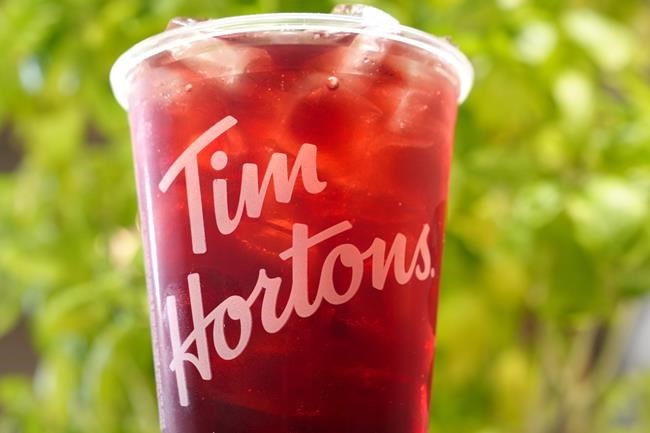TORONTO — As Tim Hortons and Burger King's parent company saw its profit rise 18 per cent in its latest quarter, its chief executive noticed a broader trend taking hold across the industry: slowing sales.
Restaurant Brands International Inc.'s Joshua Kobza says consumers have become "a bit more sensitive to price," pressuring the fast-food sector, even though inflation is easing.
The shift in behaviour has left fast-food chains looking to drive more traffic to their restaurants and convince customers to drop a bit more money on every order, but Kobza tempered expectations around how far the Toronto-based company will go to counter some of the price sensitivity.
"We know value is also top of mind, and while there are a few tactical things we can do on the margin, you should not expect us to reinvent the wheel on value," he told analysts on a Tuesday call.
Tim Hortons' approach to value has long rested in its focus on pricing menu items lower than competitors, but in recent years, it has bolstered the strategy with the launch of affordable "anytime snackers" like savoury pinwheels and flatbread pizzas priced as low as $6.99.
"We don't believe in temporary discounting," Axel Schwan, Tim Hortons' president, said in an interview following Kobza's call. "That's not what we are known for."
Instead, he said the company sees providing "great value for money" as being one of its "core pillars" that "we can never lose sight of."
Burger King has also taken a value tactic recently with its $5 Duo Deal and Your Way meal promotions, which Kobza characterized as "pretty effective," adding "there's no real intention to change the strategy there."
"We try to be balanced in how we manage any cost headwinds," he said.
"We don't want to take price up quickly, but we also want to avoid some of the deeper discounting that happened at Burger King probably three to five years ago."
Kobza's remarks were made hours after RBI, which also owns Popeyes Louisiana Kitchen and Firehouse Subs, revealed it earned a net income of US$328 million or 72 cents per diluted share in its first quarter, up from US$277 million or 61 cents per diluted share a year earlier.
The company, which keeps its books in U.S. dollars, said revenue totalled US$1.74 billion for the quarter ended March 31, up from US$1.59 billion in the same quarter last year.
On an adjusted basis, it earned 73 cents per diluted share in its latest quarter, down from 75 cents per diluted share a year earlier.
The increase came as consolidated comparable sales rose 4.6 per cent across its entire business. Tim Hortons saw comparable sales rise 6.9 per cent alone. Popeyes' comparable sales rose 5.7 per cent while Burger King's increased by 3.8 per cent and Firehouse Subs' edged up 0.3 per cent.
The same morning as RBI released such numbers, U.S. rival McDonald's missed quarterly profit estimates. Ian Borden, chief financial officer at the U.S. fast-food giant, warned "the consumer is price weary" and the company plans to be "prudent and thoughtful about any further price increases."
The softening the market is seeing was "expected" because inflation and prices were due to drop as 2024 got underway, Kobza said.
But chief financial officer Sami Siddiqui added the trend has also brought some relief to chains.
"On the flip side, as you think about Popeyes and the chicken industry, you've actually seen some abatement in food costs from a macro perspective," he said on the same call as Kobza.
The executives also used the discussion with analysts to highlight a wave of spending it announced Tuesday coming to Burger King.
RBI will pour US$300 million more into an ongoing plan to modernize Burger King restaurants across the U.S.
The new tranche of funding will expand a co-investment program, which provides cash incentives to top-performing franchisees to support rebuilds and 1,000 more remodels through 2028.
"This is the final piece of the puzzle," Duncan Fulton, RBI's chief corporate officer, said in an interview.
Once the remodels are done, he expects up to 90 per cent of Burger King's restaurants to feature its new modern image by 2028.
RBI remodels its restaurants about every 10 years, Fulton added.
This report by The Canadian Press was first published April 30, 2024.
Companies in this story: (TSX:QSR)
Tara Deschamps, The Canadian Press



